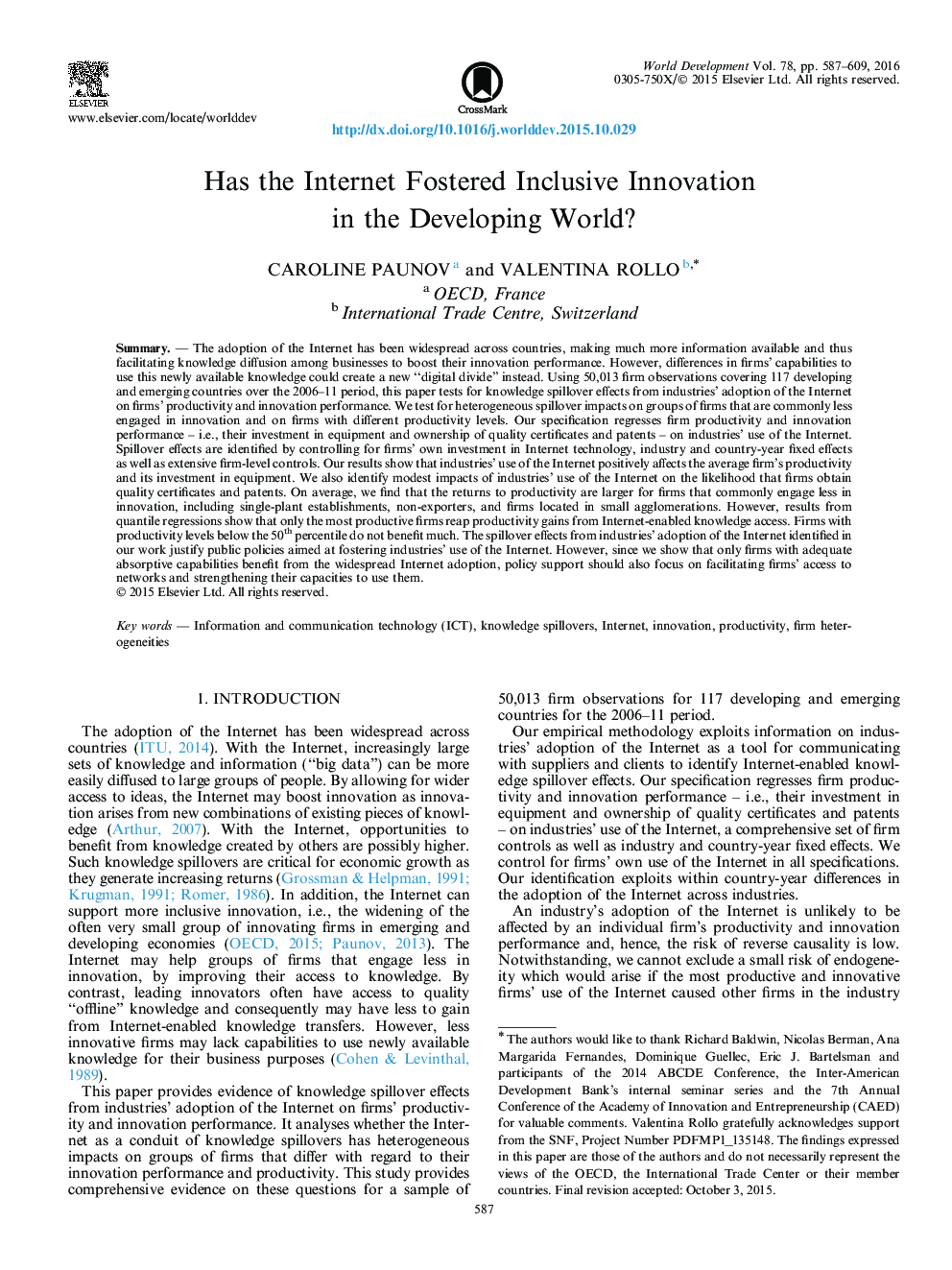| کد مقاله | کد نشریه | سال انتشار | مقاله انگلیسی | نسخه تمام متن |
|---|---|---|---|---|
| 7393414 | 1481140 | 2016 | 23 صفحه PDF | دانلود رایگان |
عنوان انگلیسی مقاله ISI
Has the Internet Fostered Inclusive Innovation in the Developing World?
ترجمه فارسی عنوان
آیا اینترنت پرورش نوآوری جامع در جهان در حال توسعه است؟
دانلود مقاله + سفارش ترجمه
دانلود مقاله ISI انگلیسی
رایگان برای ایرانیان
کلمات کلیدی
موضوعات مرتبط
علوم انسانی و اجتماعی
اقتصاد، اقتصادسنجی و امور مالی
اقتصاد و اقتصادسنجی
چکیده انگلیسی
The adoption of the Internet has been widespread across countries, making much more information available and thus facilitating knowledge diffusion among businesses to boost their innovation performance. However, differences in firms' capabilities to use this newly available knowledge could create a new “digital divide” instead. Using 50,013 firm observations covering 117 developing and emerging countries over the 2006-11 period, this paper tests for knowledge spillover effects from industries' adoption of the Internet on firms' productivity and innovation performance. We test for heterogeneous spillover impacts on groups of firms that are commonly less engaged in innovation and on firms with different productivity levels. Our specification regresses firm productivity and innovation performance - i.e., their investment in equipment and ownership of quality certificates and patents - on industries' use of the Internet. Spillover effects are identified by controlling for firms' own investment in Internet technology, industry and country-year fixed effects as well as extensive firm-level controls. Our results show that industries' use of the Internet positively affects the average firm's productivity and its investment in equipment. We also identify modest impacts of industries' use of the Internet on the likelihood that firms obtain quality certificates and patents. On average, we find that the returns to productivity are larger for firms that commonly engage less in innovation, including single-plant establishments, non-exporters, and firms located in small agglomerations. However, results from quantile regressions show that only the most productive firms reap productivity gains from Internet-enabled knowledge access. Firms with productivity levels below the 50th percentile do not benefit much. The spillover effects from industries' adoption of the Internet identified in our work justify public policies aimed at fostering industries' use of the Internet. However, since we show that only firms with adequate absorptive capabilities benefit from the widespread Internet adoption, policy support should also focus on facilitating firms' access to networks and strengthening their capacities to use them.
ناشر
Database: Elsevier - ScienceDirect (ساینس دایرکت)
Journal: World Development - Volume 78, February 2016, Pages 587-609
Journal: World Development - Volume 78, February 2016, Pages 587-609
نویسندگان
Caroline Paunov, Valentina Rollo,
